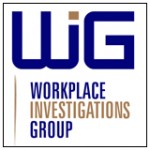 In an Order issued earlier today, the Supreme Court of the United States invited the Solicitor General “to file a brief … expressing the views of the United States” in a case testing the scope of the Sarbanes-Oxley (“SOX) retaliation prohibition against whistleblowers who are employees of publicly-traded companies. The case is Lawson v. FMR LLC and the Court will decide whether to hear the case after it considers the Solicitor General’s submission.
In an Order issued earlier today, the Supreme Court of the United States invited the Solicitor General “to file a brief … expressing the views of the United States” in a case testing the scope of the Sarbanes-Oxley (“SOX) retaliation prohibition against whistleblowers who are employees of publicly-traded companies. The case is Lawson v. FMR LLC and the Court will decide whether to hear the case after it considers the Solicitor General’s submission.
Currently, there is a conflicting interpretation between the United States Court of Appeals for the First Circuit (ME, MA, NH, PR, RI) and the Administrative Review Board of the United States Department of Labor on the issue of whether SOX whistleblower protections encompass non-public companies that contract services to public companies.
First Circuit’s Decision In Lawson
In Lawson, the First Circuit, in an opinion dated February 3, 2012, held that only employees of publicly traded companies enjoy SOX whistleblower protection. The plaintiffs worked for private companies that provided services under contract to publicly traded companies. Although the district court denied the employer’s motions to dismiss, holding that SOX’s whistleblower protections reached employees of private agents, contractors and subcontractors in private companies, the First Circuit granted interlocutory review and ultimately reversed the district court decision.
DOL Decision in Spinner
In Spinner, the plaintiff was a Certified Public Accountant who alleged he was fired from his position at an internal audit firm for reporting internal control and reconciliation problems at a publicly traded client of the audit firm. The plaintiff filed a complaint with the Occupational Safety and Health Administration. OSHA investigated and concluded that the plaintiff would have been fired even if he had not reported the problem.
The plaintiff appealed the case to an administrative law judge, who ruled in favor of the employer, holding that its employees were not covered by SOX’s whistleblower provision because the internal audit firm was not a publicly-traded company. On appeal, however, the Administrative Review Board found the holding in Lawson to be non-controlling and declined to follow it. Rather, the Administrative Review Board, in an opinion dated May 31, 2012, ruled SOX covers employees who are employed by contractors for publicly-traded companies.
Implications for Employers
Retaliation and whistleblower claims are among the fastest growing type of litigation facing employers today. The conflict in interpretation of the SOX whistleblower law between the DOL and the First Circuit is an example of the quickly changing legal landscape in this area and a reminder that employers of all sizes (publicly traded and not) need to ensure they have well-drafted policies and processes in place for responding to whistleblower concerns.
It is also critical that employers be prepared to conduct workplace investigations into these concerns that do not themselves create additional problems such as retaliation claims. Employers who do not have professional staff or in-house counsel with the experience, knowledge, and expertise to conduct legally defensible workplace investigations, should retain an outside investigator and/or outside counsel who possesses these qualifications.
_______________________________________
 Workplace Investigations Group is headquartered in Atlanta, GA but has a national panel of professional workplace investigators who are all attorneys and have a minimum of ten years of employment litigation experience. As such, wherever the workplace issue arises, we provide you with an investigator who can respond to the regional need quickly and competently. For more information: www.Workplace-Investigations-Group.com
Workplace Investigations Group is headquartered in Atlanta, GA but has a national panel of professional workplace investigators who are all attorneys and have a minimum of ten years of employment litigation experience. As such, wherever the workplace issue arises, we provide you with an investigator who can respond to the regional need quickly and competently. For more information: www.Workplace-Investigations-Group.com

Pingback: Weekly Roundup | i-Sight Investigation Software